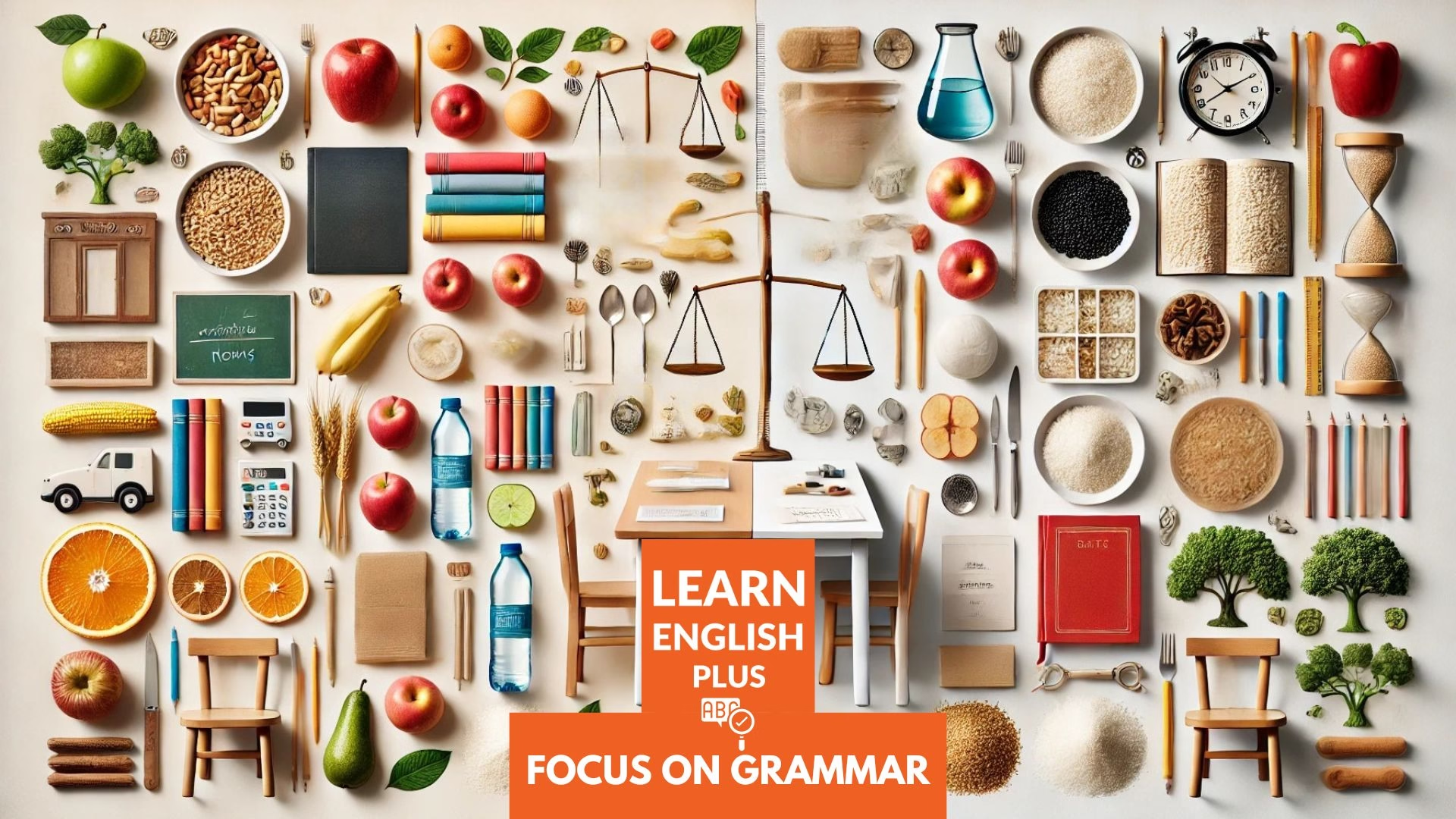Introduction
Have you ever thought about why we say “three apples” but “some water”? That’s all about whether a noun is countable or uncountable! Understanding this difference is super important because it affects the words we use with these nouns, like numbers, articles (a/an/the), and quantifiers (like some, any, much, many). Getting it right will make your English sound more natural and prevent misunderstandings. So, let’s dive in and unlock the secrets of countable and uncountable nouns – it’s easier than you think, and it will make a big difference in your English skills!
Quick Overview
Imagine you have a bunch of individual items that you can easily count – like fingers on your hand or books on a shelf. These are usually countable nouns. You can say “one finger,” “two fingers,” “one book,” “three books.” Now, think about things that are more like a mass or a liquid that you can’t really count individually – like water, air, or rice. These are often uncountable nouns. You wouldn’t usually say “one water” or “two airs.” Instead, you talk about them in terms of quantity or amount.
Grammar Quiz
Grammar Explanation
Elementary Level
Let’s start simple. Countable nouns are things you can count. Think of them as individual items. You can ask “How many?” about them. Examples include: one book, two books, three books; one friend, five friends; one apple, ten apples. You can make them plural by adding -s or -es (usually!). You can also use the articles a or an before a singular countable noun (like a book, an apple).
Uncountable nouns, on the other hand, are things you can’t easily count as individual items. They’re more like a mass or a general concept. You usually can’t put a number directly in front of them, and they don’t usually have a plural form (we don’t say “two waters”). You can ask “How much?” about them. Examples include: water, rice, sugar, information, advice, happiness. You usually don’t use a or an with them. Instead, you might use quantifiers like some, any, much, a little.
Intermediate Level
Now, let’s look at some nuances. Some nouns can be both countable and uncountable depending on the context. For example, coffee can be uncountable when you’re talking about the drink in general (“I like coffee”), but it can be countable when you’re talking about individual cups (“Two coffees, please”). Similarly, hair is usually uncountable (“She has long hair”), but it can be countable when referring to individual strands (“There are a few hairs on the floor”).
You’ll also start to see that we often use “containers” or “units” to talk about quantities of uncountable nouns. For example, instead of saying “one water,” we say “a bottle of water” or “a glass of water.” Instead of “one rice,” we say “a grain of rice” or “a bag of rice.” Common units include a piece of (for advice, information, furniture), a loaf of (for bread), a carton of (for milk), a cup of (for tea, coffee), and many more.
Advanced Level
At this level, you’ll understand that the distinction can sometimes be cultural or based on convention. For instance, in some languages, words that are uncountable in English might be countable. You’ll also encounter more abstract uncountable nouns like knowledge, progress, education, love, anger. These are concepts or feelings that we don’t typically quantify individually.
Furthermore, you’ll recognize that the choice between countable and uncountable can sometimes affect the meaning. For example, “experience” as uncountable refers to general life experience (“He has a lot of experience in marketing”), while “an experience” as countable refers to a specific event (“That trip was an amazing experience”). Pay close attention to the context to determine whether a noun is being used in its countable or uncountable form.
Outro
Fantastic work on tackling countable and uncountable nouns! You now have a solid understanding of how to differentiate between them and how to use them correctly with different quantifiers and articles. This knowledge will significantly improve your fluency and accuracy in English, both in writing and speaking. You’ll be able to talk about quantities more precisely and understand others better. Keep practicing by noticing countable and uncountable nouns in the English you read and hear, and soon it will become second nature. You’re well on your way to mastering English grammar!










0 Comments